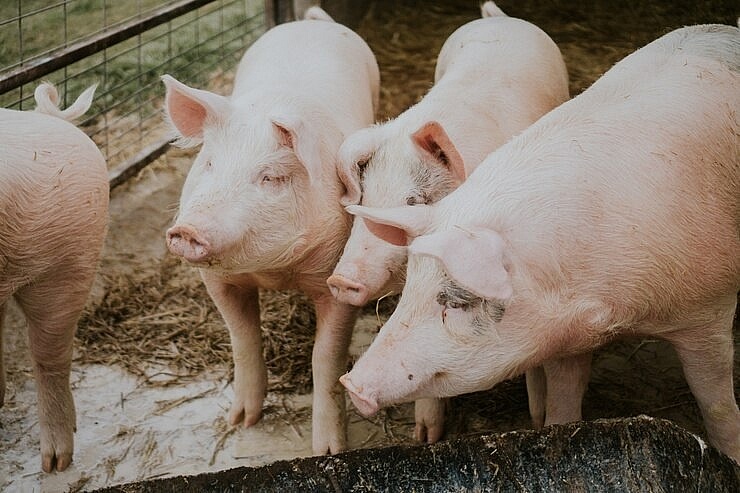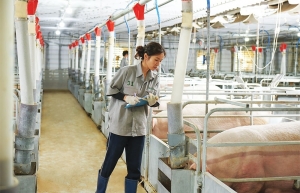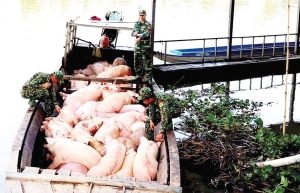Livestock farms face up to mass relocation challenge
Having been operating in Vietnam since 1996 with a huge network of husbandry farms, one Indonesian husbandry company is being forced to relocate many of them from residential areas built after the farms opened.
 |
| Livestock farms face up to mass relocation challenge, illustration photo/ Source: freepik.com |
The 2020 Law on Livestock Production prohibits livestock production in cities, towns, and near living quarters, with the exception of raising ornamental animals and those in laboratories without polluting the environment. According to the law, that specific regulation comes into effect in 2025 and localities will be given five years to relocate livestock facilities that do not comply.
A representative of the company told VIR, “Our company has many outsourcing livestock farms in many provinces forced to remove out of residential areas. We are concerned about the feasibility of these relocations due to a lack of land, but the deadline is coming closer. Our companies and other livestock companies have worked with local state management agencies to ask for new locations to set up facilities, but there is no specific information.”
Many other livestock facilities across the country are being affected, particularly in Hoa Binh, Ha Nam, Quang Tri, and Dong Nai provinces, among others.
Last month, the state management agencies of Dong Nai began to review livestock facilities with environmental violations and facilities that failed to meet standards. According to the decision of its people’s committee in 2023, the province required the relocation of 2,100 breeding farms and to shut down approximately 900 breeding facilities before January 2025.
The reason for the drastic move is to remove livestock facilities from residential areas, which are causing untold amounts of environmental pollution. Land for the sector is further narrowed because the province wants to extend planning for industrial parks to draw in high-quality ventures.
The southern province of Dong Nai is a hub for some of the largest livestock companies in the country, such as C.P. Vietnam, CJ, Masan, and Hoa Phat. These groups manage farms under outsourcing and rental facilities.
Nguyen Tri Cong, chairman of the Dong Nai Livestock Association, said, “The relocation will face challenges because the province currently exhausted the land to remove these livestock facilities. The province also does not license new ones.”
Nguyen Xuan Duong, chairman of the Animal Husbandry Association of Vietnam, said, “Many domestic and foreign-invested livestock companies complained to the association about the delay of many localities in allocating power sources and land for this relocation. The policy was promulgated five years ago, so it has been enough time for localities to prepare. However, many of them are still ignoring this problem.”
Along with the problem relating to land, the companies are also concerned about the approval of environmental impact assessment reports, which needs the involvement of the Ministry of Natural Resources and Environment, Duong added.
“The legal framework is complete but enterprises still suffer difficulties in approaching the authorities to get the licence and they need the support from authorities to clarify the criteria framework,” he said.
A representative from a Vietnamese poultry production company which has facilities in the southern provinces of Binh Duong and Tien Giang said, “We expect that the authorities will guide companies in detail during the process to get the new construction and environmental licences for the new farms to assist the companies’ production and breeding plans.”
Another major problem is that new roads will have to be developed for many of these relocations. “The relocated breeding facilities will likely be far from residential areas and far from main highways, with the result that the transportation will be more difficult and cost more if the road system is incomplete,” he said.
The Ministry of Agriculture and Rural Development has built a draft resolution to support households in the relocation of farms, but it has yet to be approved.
 | Livestock companies latch onto gains involving circular economic model The circular economy is hitting its stride among livestock companies across the country, and are expected to gain increased revenues in the next few years thanks to applying fresh and greener methods. |
 | Smuggling continues to harm livestock gain The livestock industry is struggling to cope with the increase in smuggled pig operations. |
What the stars mean:
★ Poor ★ ★ Promising ★★★ Good ★★★★ Very good ★★★★★ Exceptional
Related Contents
Latest News
More News
- The generics industry: unlocking new growth drivers (February 04, 2026 | 17:39)
- Vietnam ready to increase purchases of US goods (February 04, 2026 | 15:55)
- Steel industry faces challenges in 2026 (February 03, 2026 | 17:20)
- State corporations poised to drive 2026 growth (February 03, 2026 | 13:58)
- Why high-tech talent will define Vietnam’s growth (February 02, 2026 | 10:47)
- FMCG resilience amid varying storms (February 02, 2026 | 10:00)
- Customs reforms strengthen business confidence, support trade growth (February 01, 2026 | 08:20)
- Vietnam and US to launch sixth trade negotiation round (January 30, 2026 | 15:19)
- Digital publishing emerges as key growth driver in Vietnam (January 30, 2026 | 10:59)
- EVN signs key contract for Tri An hydropower expansion (January 30, 2026 | 10:57)

 Tag:
Tag:



















 Mobile Version
Mobile Version